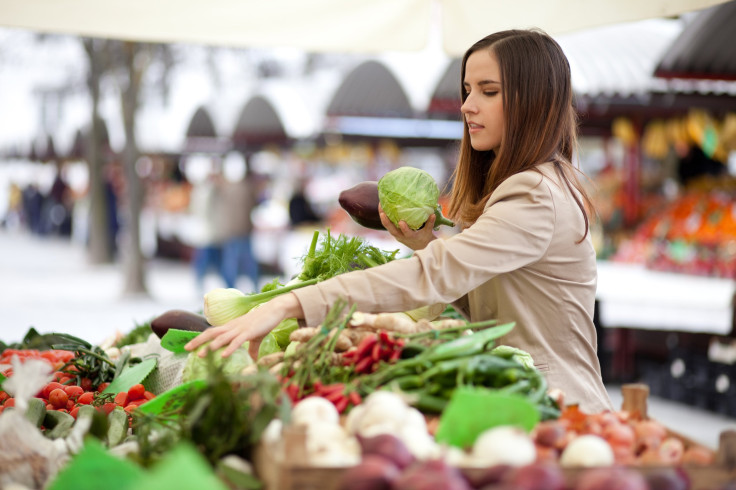'Food Stamps' For Farmers' Markets: Low-Income Families May Gain Greater Access To Affordable Produce

Government vouchers for farmers' markets would help boost consumption of fruits and vegetables among low-income families, some policy experts say.
Already, a quarter of farmers' markets across the United States accept food stamps, with some municipalities and private organizations providing vouchers for fresh produce. And a program thrown into the federal government’s massive farm bill — the Agriculture Act of 2014 — would incentivize low-income families to buy produce at local farmers' markets. These programs, researchers from New York University reported Thursday in the journal Food Policy, have the potential to increase the consumption of healthier foods among the poor.
"In terms of healthy food options, farmers market incentives may be able to bring a low-income person onto the same playing field as those with greater means," lead researcher Carolyn Dimitri, an associate professor of food studies, said in a press statement.
The researchers also appealed to conservatives critical of the federal Supplemental Nutrition Assistance Program, which provides 23 million American households with food stamps. Since 2009, enrollment has risen from 33.4 million Americans at a cost of $50 billion per year to 44.6 million at $76 billion in 2014, according to the U.S. Department of Agriculture. Whereas food stamps may be used to purchase unhealthy foods at the supermarket, vouchers for farmers' markets would only serve fruits and vegetables to the poor.
The researchers followed 281 poor single mothers they recruited at five farmers' markets in New York City, San Diego, and Boston — all of whom were receiving either food stamps or benefits from the federal program Women, Infants, and Children. Although Dimitri and her colleagues report that vouchers alone won’t save America from hunger, they found that the poorest benefited the most. Among single mothers on public assistance, those with low education levels and those who had consumed the least amount of fruits and vegetables benefited most from vouchers for farmers' markets.
After 12 to 16 weeks of follow-up with the women, the researchers found that older women and those living in urban “food deserts” were most likely to drop out of the study, even when incentivized with a $10 voucher to be matched by the recipient with another $10 in food stamps or cash.
"Our food choices are very complex, and issues with food security won't be solved with a single program," Dimitri said. "Even though not all participants increased their consumption of produce, our study suggests that nutrition incentives are a promising option that can help economically disadvantaged families eat healthier diets."
Source: Dimitri C, Oberholtzer L, Zive M, et al. Enhancing food security of low-income consumers: an investigation of financial incentives for use at farmers marekts. Food Policy. 2014.



























